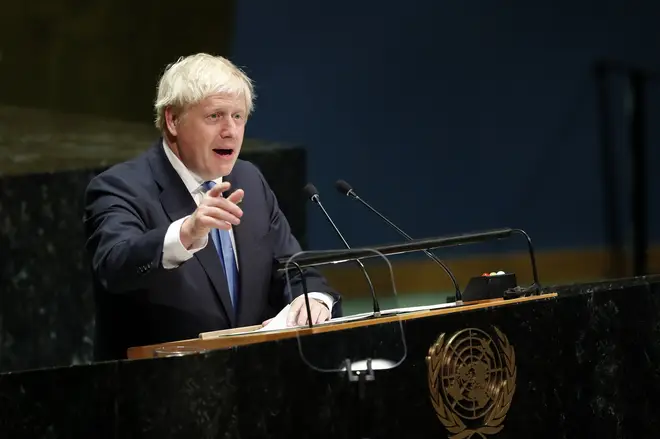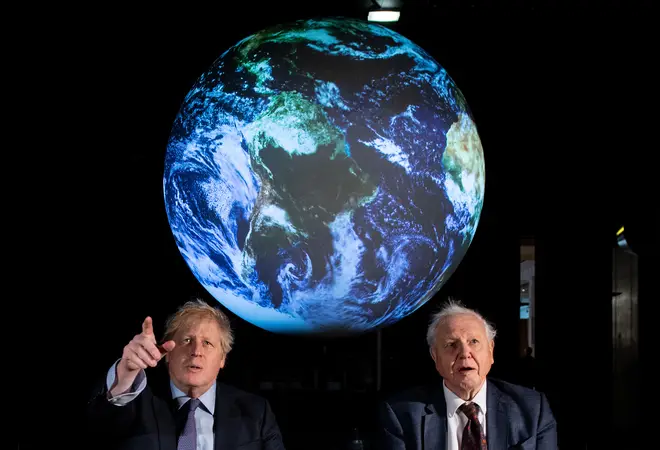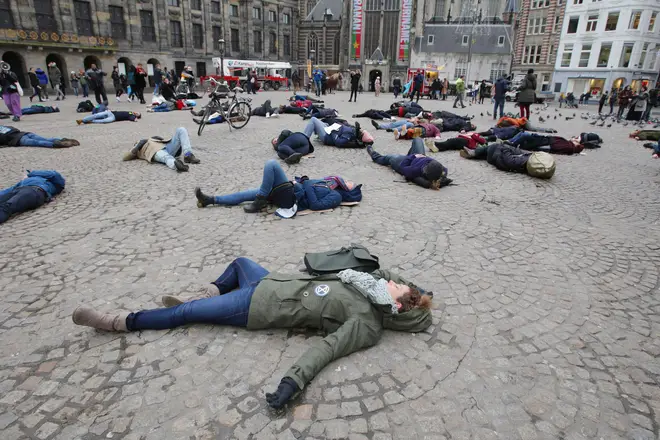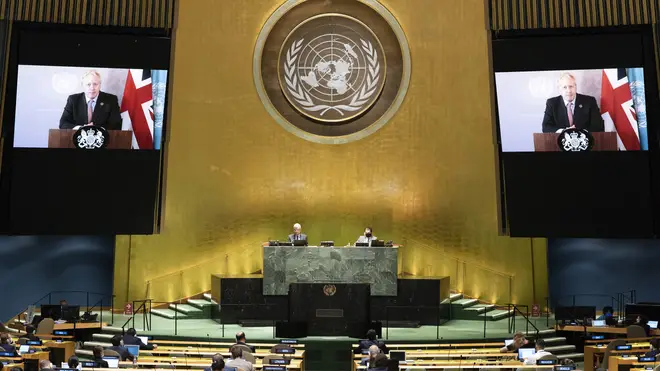
Clive Bull 1am - 4am
23 February 2021, 07:23

Climate change is a grave threat to global peace and security, Boris Johnson has warned ahead of a major United Nations meeting on the issue.
The Prime Minister, who is chairing the session on Tuesday, called for action to help countries vulnerable to the impacts of rising temperatures and sea levels adapt to the changing climate and cutting global emissions to net zero.
He claims a warming planet is driving insecurity, "from the communities uprooted by extreme weather and hunger, to warlords capitalising on the scramble for resources".
Read more: Young people could be 'champions of environmental change', says Prince William
The PM said the initiative would require huge cuts to greenhouse gases and any remaining pollution to be offset through measures such as planting trees - to protect prosperity and security.
The UN Security Council (UNSC) session on climate and security will hear from veteran broadcaster and natural historian Sir David Attenborough, who will say that the world could avoid irreversible 'runaway' climate change if countries act to bring down emissions with "sufficient vigour" in the next several years.

Ahead of the meeting, he told reporters: "If we bring emissions down with sufficient vigour we may yet avoid the tipping points that will make runaway climate change unstoppable.
"In November this year, at Cop26 in Glasgow, we may have our last opportunity to make the necessary step-change.
"If we objectively view climate change and the loss of nature as worldwide security threats - as indeed they are - then we may yet act proportionately and in time."
Echoing warnings from the legendary naturalist, Mr Johnson added: "The UNSC is tasked with confronting the gravest threats to global peace and security, and that's exactly what climate change represents."
But he said: "Unlike many issues the Council deals with, this is one we know exactly how to address.
"By helping vulnerable countries adapt to climate change and cutting global emissions to net zero, we will protect not only the bountiful biodiversity of our planet but its prosperity and security."

The gathering is ahead of the UN's Cop26 climate summit being hosted by the UK in November in Glasgow.
Sir David will warn the 15-member council in a video message that it could be the last opportunity to make the necessary step-change.
The UNSC session is the first leader-level discussion it has held on climate and the first time it has been chaired by a British prime minister in almost 30 years.
Read more: ‘Landmark moment’: Air pollution marked as a cause of 9-year-old's death
It comes as countries increasingly face the effects of rising temperatures and extreme weather, which is forcing populations to move and creating competition over increasingly scarce resources.
Of the 20 countries ranked most vulnerable to rising global temperatures, 12 are already in conflict, officials said.

It comes amid a report, released on Tuesday, which estimates nearly a third of fish in rivers and lakes around the world are threatened with extinction.
The UK is "no exception" when it comes to the threats facing freshwater fish species, wildlife charity WWF said, pointing to the extinction of burbot and sturgeon and declines in salmon and European eels.
Populations of migratory freshwater fish have fallen by more than three quarters (76%) since 1970, with declines of 94% for "mega fish" weighing more than 30kg (66lb), while 80 species have been declared extinct.
It called on the UK Government to back an emergency recovery plan for freshwater wildlife as part of new global nature targets set to be negotiated this year.
A Department for Environment, Food and Rural Affairs (Defra) spokesperson said: "We remain committed to working closely with water companies, farmers and the fishing industry to restore healthy fish stocks and habitats both through domestic action and international working."